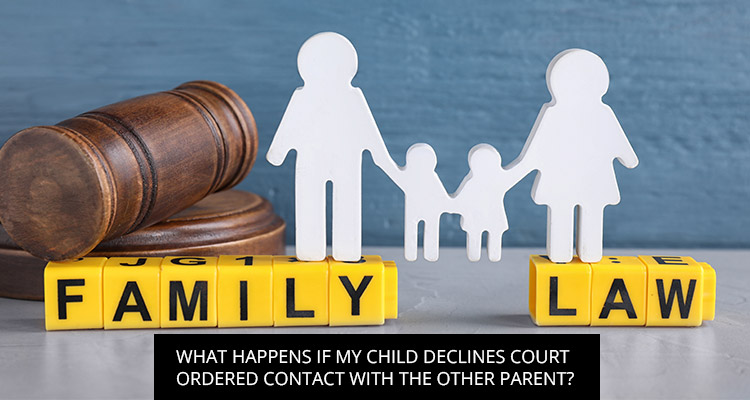
Oftentimes, courts play a significant role in setting out parenting schedules considering the best interests of the child. These parenting arrangements are meant to be followed by the parents. If the parent fails to enable contact of the child with the other parent, then the former may face legal consequences. This implies that a parent could be in contempt of court if he/she does not take relevant measures when the contact of child was breaking down with the other parent.
Under Rule 1(8) of the Family Law Rules (“the Rules”), the courts are authorized to issue orders if a party fails to comply with the order in the case for a just determination of the matter.
At its absolute core, the parents who have the care of the child are under obligation to enforce parenting and contact order with the other parent. The parents are required to oblige to court orders as long as the orders are not terminated or varied.
In Godard v. Godard, the Ontario Court of Appeal made it abundantly clear that compliance with the court ordered contact is not up to the discretion of the child. It is the primary parent who is responsible for facilitating contact between the child and the other parent.
How To Determine If The Primary Parent Has Taken Due Steps To Comply With The Court Order After All That Resistance Of The Child To Maintain Contact With The Other Parent?
The answer to this question can be determined from Villeneuve v. Wilson where the Superior Court of Justice specified that a parent is supposed to take reasonable steps regarding compliance with the court order. This essentially means that a parent is not required to achieve the impossible but he/she is obligated to utilize the normal parenting pressure to enforce contact of the child with the other parent.
King v. King is another case concerning non-compliance with contact and parenting time with the child of the marriage. At para. 48 of King, the court ruled that using the purported wishes of the child as a defense mechanism regarding contempt of the court order would not work. Doing so is similar to abandoning his/her parental duties.
It is pertinent to note that a balance needs to be maintained between the necessity of upholding court orders and promoting parental contact, whilst also recognizing and respecting children’s choices and the need to protect their welfare. A party may be found guilty of contempt if the proving party can show beyond a reasonable doubt that the proving party neglected to take all necessary measures to secure the order’s obedience.
Essential Factors In Determining The Primary Parent’s Role Concerning The Compliance Of The Court Order
It may become harder to enforce an order on a child as he/she grows, but that does not mean that a parent’s obligation to encourage compliance diminishes with age. In Jackson v. Jackson, a number of factors were outlined to evaluate in determining whether reasonable safeguards were taken:
- Did the parent have a conversation with the child to figure out the reason the child is reluctant to go?
- Did they share their struggles and plans for resolving them with the other parent or other family members?
- Did they specify any specific punishments in case the child persisted in disobeying the order?
- Did they give the kid a reward for following the rules?
Note: Please be advised that this is a non-exhaustive list of factors that may be relevant in assessing whether the primary parent has played his/her part in the obligation of the order.
Contact The Divorce Lawyers At Ayaz Mehdi Professional Corporation
The attorneys at Ayaz Mehdi Professional Corporation are available to provide legal assistance in all kinds of family issues within the parameters of governing laws.
Disclaimer: Kindly note that sending or receiving information through this site does not establish a solicitor-client relationship. Legal matters are fact-specific, and the law is variably changing. The views expressed and the content provided on this blog are general guidelines and cannot substitute for proper legal advice. Schedule your legal consultation by clicking here: Let’s meet!






